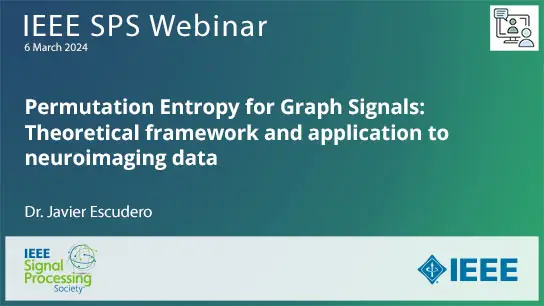Slides for: Tensor Decompositions in Functional Neuroimaging
Borbala Hunyadi
-
Members: FreeSPS
IEEE Members: $11.00
Non-members: $15.00Pages/Slides: 70
Brain data are inherently large scale, multidimensional, and noisy. Indeed, advances in imaging and sensor technology allow recordings of ever-increasing spatio-temporal resolution. Multidimensional, as time series data are recorded at multiple locations (electrodes, voxels), from multiple subjects, under various conditions. Finally, the data are noisy: the recorded observations are a mixture of ongoing brain activity, physiological, and non-physiological noise sources. Tensors (higher order arrays) are the natural representations of such multidimensional data. Tensor decompositions, in general, aim to write a large and high-order tensor in terms of the product and summation of several smaller and low-rank tensors (including vectors and matrices). A tensor decomposition with a well-chosen number of terms and ranks can approximate the original data tensor using much fewer entries; even to capture the underlying sources separately in its individual components. This talk will first give an introduction to multilinear algebra and tensor decompositions, discuss current challenges in large-scale brain data analysis, and finally highlight some successful applications of tensor decompositions in EEG and functional ultrasound (fUS) data processing.


